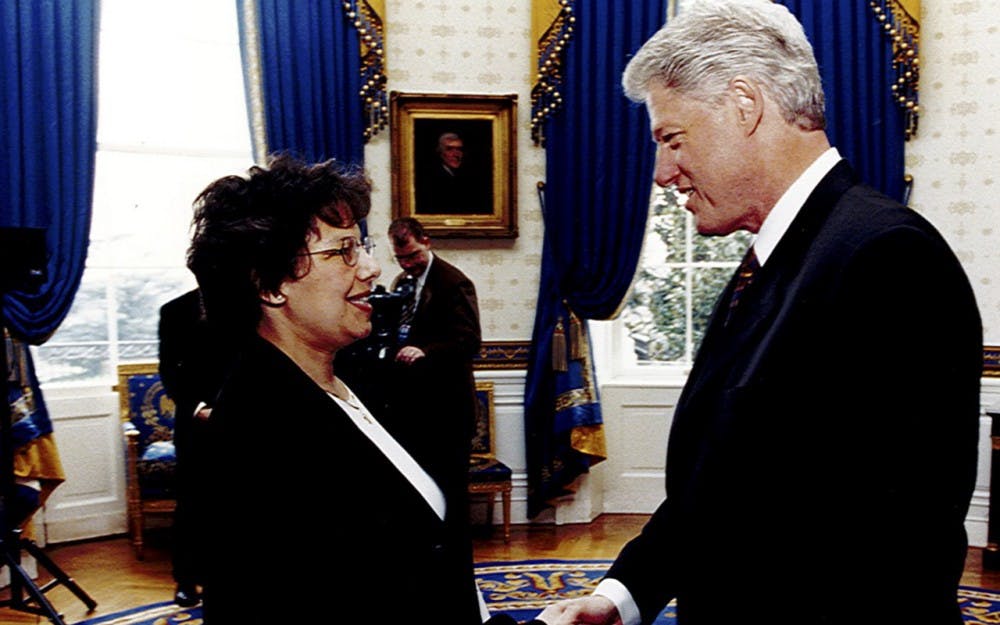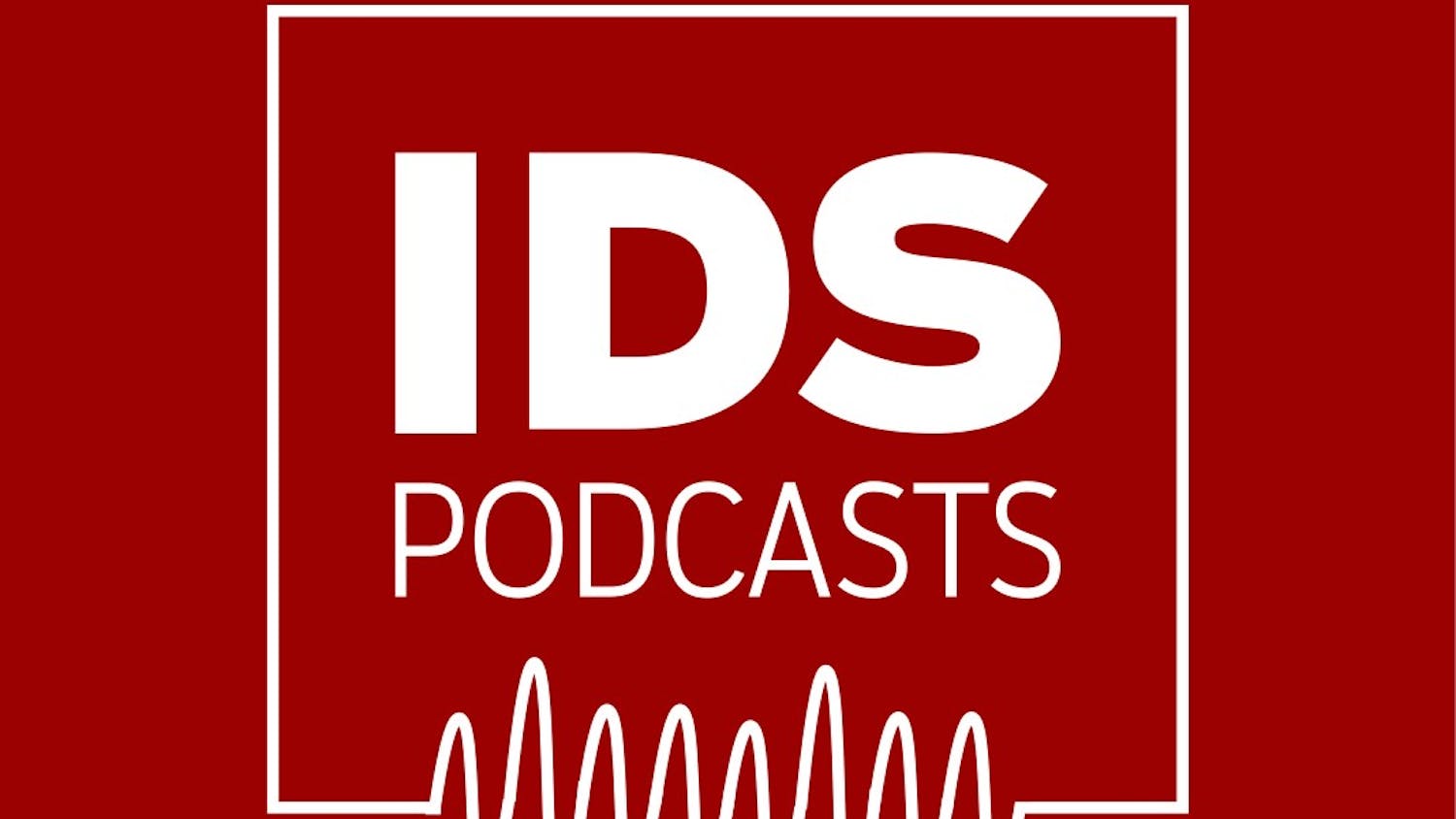First they came for the socialists, and I did not speak out—
Because I was not a socialist.
Then they came for the trade unionists, and I did not speak out—
Because I was not a trade unionist.
Then they came for the Jews, and I did not speak out—
Because I was not a Jew.
Then they came for me—and there was no one left to speak for me.
This poem by Martin Niemöller, a Protestant pastor who emerged as an outspoken public foe of Adolf Hitler and spent the last seven years of Nazi rule in concentration camps, has seen many variations via social media following the United States presidential election. President-elect Donald Trump campaigned on a platform that called for the deportation of all illegal immigrants, the registration of Muslim citizens, a ban on allowing refugees into the country and policies that would decrease equality between genders.
On Nov. 9, when Trump won the presidency, riots took place across the nation, with people from both sides of the political spectrum chanting both “Not my president” and “Make America white again.” Trump’s win brought anger and frustration to his opponents and negative empowerment to his supporters, leaving a country divided.
“Nov. 9 plays out as a significant date, and it keeps resurfacing as a significant moment where there is a huge shift in power,” said Vanessa Domizlaff, German teacher at Bloomington High School North.
Domizlaff moved from Hamburg to the United States when she was 13 years old and moved to Bloomington when she was pursuing a graduate degree in Germanic studies at IU.
Nov. 9, 1938, was Kristallnacht, the night of broken glass, in Nazi Germany, when nearly 100 Jews were murdered and hundreds of Jewish homes and businesses were destroyed and burnt to the ground.
Seventy-eight years later, glass shattered on streets in the U.S., and many feared history was repeating itself.
In German history, Nov. 9 also is the day Wilhelm II abdicated after World War I and Germany became a republic in 1918. The Berlin Wall fell Nov. 9, 1989.
These events have a shadow upon them because they share the same date as Kristallnacht, Domizlaff said.
“What’s making me fearful is this violence that we have been seeing, and now it’s coming into expression,” Domizlaff said. “Mostly because people are gaining bravery, and it is exactly how Kristallnacht came into form. It gave nameless brown shirts the power to bully.”
Domizlaff said what is more scary is how this bravery has been ignited from the election. Both ends of the political spectrum have built up anxiety and the retaliation is taking away from the legitimacy of each party.
“The anxiety has to go somewhere. It’s dangerous to go against the government,” Domizlaff said. “Because people didn’t vote for the president, people won’t accept political outcomes as valid.”
Questioning the government has happened throughout history and is a necessary aspect of representative democracy, Domizlaff said.
* * *
Several hate crimes, including in Bloomington, have been reported across the country since election night. White swastikas and Ku Klux Klan signs were painted on the B-line trail, and one woman reported being verbally abused by a Trump supporter.
Jennifer Crossley was leaving work for the night Nov. 9 as she saw something in the road that looked funny to her.
As she went to investigate the object, a truck pulled up and revved its engine next to her. A man revealed himself in the vehicle and screamed, “Fuck you, nigger bitch. Trump will deport your ass back to Africa.”
“In my years of living in Bloomington, I have never experienced something like that,” Crossley said. “When I got home I couldn’t do anything but cry.”
Crossley, married and a mother of three, said she felt shocked, scared and upset, mostly for the future of her family, after the election.
“It’s sad that we elected a 3-year-old trapped in the body of a 70-year-old man,” Crossley said. “But I need to be optimistic and just watch the presidency with one eye open.”
Crossley said she felt shamed by the number of her friends that did not vote. She attributed this to the lack of faith in the Electoral College, but she said that isn’t an excuse to not perform their civic duty.
“One man cannot dictate how we feel as a nation,” Crossley said. “I just need to look into the best of people.”
[Woman reports harassment following election | IDS]
* * *
Many people do not fear Trump as much as his most elite supporters and possible cabinet members.
Former Ku Klux Klan leader David Duke called Trump’s electoral win one of the most exciting nights of his life. He said there is no mistake that his people played a huge role in Trump’s election and this election is a great win for them.
Trump recently named Stephen Bannon, right-wing media executive, his chief strategist and senior counselor. This decision met strong opposition from the Anti-Defamation League, the Council on American–Islamic Relations and the Southern Poverty Law Center due to statements from Breitbart News, they argued, were racist and anti-Semitic.
Both men are associated with groups that have been linked to hate crimes throughout history.
“We do periodically see hate crimes, but I’ve always felt that we had government that repudiates hate,” Rabbi Sue Silberberg, executive director of IU Hillel, said.
Following the election, Silberberg said she received countless messages from people expressing how they no longer feel safe in the U.S.
“There was a fear that when George W. Bush came into office there was uncertainty on what direction the country would go in,” Silberberg said. “Even then though, I felt certain on an administrative level that minorities were protected.”
Silberberg previously helped start the Bloomington United campaign in 1998 to respond to hundreds of white supremacy flyers that were left on windshields July 4 of that year.
Following the distribution of the flyers, Bloomington United had a rally on the courthouse square that drew hundreds of supporters. After the man who distributed the flyers went on a murderous rampage in 1999, the group then had a community vigil to heal and unite the community in memory of the young Korean student, Won Joon Yun, who was murdered at IU.
This drew thousands of supporters, including the then Attorney General of the United States, Janet Reno.
Since that incident, Silberberg said nothing that large has touched the Bloomington community. She said she is unsure what the future has in store, however.
“The difference now is no one protested Kristallnacht,” Silberberg said. “Across the country there is certainly a large group of people protesting this hate. That at least is a good thing.”
One of Domizlaff’s biggest fears of the past election was the idea of lying press. This term, used in Germany, is resonant as a Nazi term, used to put the media into question, Domizlaff said
“It is especially terrible to see this through German eyes,” Domizlaff said. “I hope people don’t understand what they are saying.”
The underlying issue in Domizlaff’s eyes is looking at what did we not listen to and what did we not hear as a society.
“Violence either escalates into a burst or eventually just suffocates,” Domizlaff said. “I feel so sad and compassionate for the people that are frustrated, and it’s not about making light of it. You need to speak up instead.”




